For most individuals and professionals who desire to flourish in their business or area, being an AWS-certified professional is on their to-do list. And, nowadays, becoming certified is like receiving a key that unlocks the door to a higher level of employment options, whether in the field of work or in the business world. With the rise in demand for AWS certifications, however, the degree of competition has risen as well. That is to say, there will be a lot of rivals in the race to acquire a certification, therefore in order to win, you must pursue a certain skill path.
But before coming on to the path, let’s talk about the exam difficulty part. That is to say, candidates before even starting the preparation start thinking about the exam difficulty which can really affect the preparation. Considering the various factor, the certifications exam difficulty depends on:
- How you are preparing,
- What study resources and methods you are using,
- How much time you are giving to your study, and,
- Lastly, Are you using practice tests?
To help you out in this, in this blog, we will cover the basis of AWS Certifications including the exams you can start with and the various preparation resources in a step-by-step manner. So, let’s begin with the overview of AWS certifications and its exam!
What are AWS Certifications?
AWS Certifications are meant to help businesses develop successful, innovative teams for cloud initiatives utilizing AWS by verifying experts and emphasizing their in-demand abilities. AWS offers a variety of certification examinations based on job and specialization to assist individuals and teams in accomplishing their objectives. You may also look at role-based credentials for Cloud Practitioners, Architects, Developers, and Operations professionals, as well as Specialty certifications in certain technical areas. So, let’s have a look at the numerous certification exams to see which one is suitable for you.
However, before commencing exam preparation, you might use this as a starting point. That is to say, it is critical to comprehend the exam and its requirements in order to determine whether or not you possess the necessary expertise. It makes no difference whether you are new to AWS certifications or a seasoned veteran. In the following part, we’ll go through the AWS tests and their fundamental prerequisites so you can pick the one that’s right for you.
The market value of AWS certifications
AWS certifications have a high market value as cloud computing has become an essential part of the IT industry. The demand for AWS-certified professionals is increasing rapidly due to the rising adoption of AWS cloud services by businesses worldwide.
Here are some of the benefits of earning an AWS certification:
- Career advancement: Earning an AWS certification can help you advance your career in the IT industry. It demonstrates your knowledge and skills in cloud computing, which is highly valued by employers.
- Higher salaries: According to a survey conducted by Global Knowledge, AWS-certified professionals earn higher salaries compared to non-certified professionals. On average, AWS-certified professionals earn about 30% more than their non-certified counterparts.
- Recognition: AWS certifications are recognized globally and are highly respected in the IT industry. They demonstrate your expertise in cloud computing and your commitment to professional development.
- Job opportunities: There is a high demand for AWS-certified professionals in the job market. Many companies are looking for professionals with AWS skills to manage their cloud infrastructure.
- Competitive edge: Having an AWS certification can give you a competitive edge in the job market. It can help you stand out from other job candidates and increase your chances of landing a job.
In conclusion, AWS certifications have a high market value and can help professionals advance their careers in the IT industry. As the adoption of AWS cloud services continues to grow, the demand for AWS-certified professionals is expected to increase in the future.
Exploring AWS Exams
AWS offers various certifications exams categorized into different levels. Moreover, it is important to understand the requirements for each exam and develop a plan to prepare with appropriate learning resources. So, let’s check the first one which is the foundational level.
1. Foundational Level
The AWS Foundation Level certification includes:
 AWS Certified Cloud Practitioner
AWS Certified Cloud Practitioner
CLF-C02 AWS Certified Cloud Practitioner exam is suitable for candidates with the knowledge to demonstrate an understanding of the AWS Cloud, AWS platform, including available services and their common use cases, AWS Cloud architectural principles, and compliance.
The exam validates candidates ability to:
- Firstly, describe the value of the AWS Cloud.
- Secondly, understand and explain the AWS shared responsibility model.
- Thirdly, understand AWS Cloud security best practices.
- Then, understand AWS Cloud costs, economics, and billing practices.
- Next, describe and position the core AWS services, including compute, network, databases, and storage.
- Lastly, identify AWS services for common use cases.
Level up your Cloud Practitioner exam preparation using the updated study guide.
Recommended AWS Knowledge
For this exam, it is recommended that candidates must have at least 6 months of experience with the AWS Cloud in any role. The role includes traditional and non-traditional students, educators, project managers, IT managers, sales managers, decision-makers, and marketers. Candidates should have a basic understanding of IT services and their uses in the AWS Cloud platform.
2. Associate Level
The AWS Associate level certifications include:
 AWS Certified Solutions Architect – Associate
AWS Certified Solutions Architect – Associate
AWS Certified Solutions Architect – Associate (SAA-C03) exam is for candidates who are performing the role of solutions architect. Candidates must have one year of hands-on experience in designing cost-effective, fault-tolerant, and scalable distributed systems on AWS.
Abilities Validated by the Certification
- Firstly, ability to design solutions that integrate AWS services to meet current business requirements and future projected needs
- Then, ability to design secure, resilient, high-performing, and cost-optimized architectures for businesses
- Lastly, ability to review existing solutions and determine improvements
Looking for Solution Architect Exam Pathway? Check this!
Recommended Knowledge and Experience
- Firstly, hands-on experience in using,
- compute, networking, storage, and database AWS services
- AWS deployment and management services
- Secondly, the ability for identifying and defining technical requirements for an AWS-based application
- Thirdly, knowledge of recommended best practices for creating secure and reliable applications on the AWS platform
- Lastly, an understanding in,
- basic architectural principles of building on the AWS Cloud
- AWS global infrastructure
- network technologies
- security features and tools that AWS provides and how they relate to traditional services
 AWS Certified SysOps Administrator – Associate (SOA-C02)
AWS Certified SysOps Administrator – Associate (SOA-C02)
The AWS Certified SysOps Administrator – Associate (SOA-C02) examination is for system administrators who are in a cloud operations role with experience of one year in deploying, managing, networking, and security on AWS.
This exam validates candidates knowledge to:
- Firstly, support and maintain AWS workloads according to the AWS Well-Architected Framework
- Secondly, perform operations by using the AWS Management Console and the AWS CLI
- Thirdly, implement security controls to meet compliance requirements
- Next, monitor, log, and troubleshoot systems as well to apply networking concepts (for example, DNS, TCP/IP, firewalls)
- Then, implement architectural requirements (for example, high availability, performance, capacity)
- Lastly, perform business continuity and disaster recovery procedures
Recommended AWS Knowledge
- Firstly, a minimum of one year of hands-on experience with AWS technology
- Secondly, experience in deploying, managing, and operating workloads on AWS
- Thirdly, understanding of the AWS Well-Architected Framework
- Next, experience with the AWS Management Console and the AWS CLI
- Then, understanding of AWS networking and security services
- Lastly, experience in implementing security controls and compliance requirements
 AWS Certified Developer – Associate
AWS Certified Developer – Associate
This AWS Certified Developer – Associate (DVA-C01) exam is for candidates performing a developer role.
This exam validates a candidate’s ability to:
- Firstly, illustrate an understanding of core AWS services, uses, and basic AWS architecture best practices.
- Secondly, illustrating the knowledge for developing, deploying, and debugging cloud-based applications using AWS.
Recommended AWS Knowledge
- Firstly, one or more years of experience to develop and maintain an AWS based application
- Secondly, knowledge of at least one high-level programming language
- Thirdly, familiarity in developing, deploying, and debugging cloud-based applications using AWS
- Fourthly, a good understanding of the AWS shared responsibility model and the application lifecycle management
- Next, the ability to:
- Firstly, use the AWS service APIs, AWS CLI, and SDKs to write applications
- Secondly, identify key features of AWS services
- Thirdly, use a CI/CD pipeline to deploy applications on AWS
- Then, use AWS services and also in applying a basic understanding of cloud-native applications for writing code
- After that, proficiency writing code for serverless applications
- Lastly, understanding the use of containers in the development process
3. Professional Level
The AWS Professional level certification includes:
 AWS Certified Solutions Architect – Professional
AWS Certified Solutions Architect – Professional
The AWS Certified Solutions Architect – Professional (SAP-C01) exam is for candidates performing the role of a solutions architect professional.
This exam validates candidates ability in:
- Firstly, creating and deploying dynamically scalable, fault-tolerant, and reliable applications on AWS.
- Secondly, selecting appropriate AWS services for designing and deploying an application based on given requirements.
- Thirdly, migrating complex, multi-tier applications on AWS.
- Lastly, designing and deploying enterprise-wide scalable operations on AWS.
Recommended Knowledge and Experience
- Firstly, two or more years of experience to design and deploy cloud architecture on AWS
- Secondly, skills to evaluate cloud application requirements and make architectural recommendations for implementation, deployment, and provisioning applications on AWS
- Thirdly, skills to provide best practice guidance on the architectural design across multiple applications and projects of the enterprise
- Then, familiarity with a scripting language, Windows and Linux environments, and AWS CLI, AWS APIs, AWS CloudFormation templates, the AWS Billing Console, and the AWS Management Console
- Lastly, design a hybrid architecture using key AWS technologies and architect a continuous integration and deployment process
 AWS Certified DevOps Engineer – Professional
AWS Certified DevOps Engineer – Professional
The AWS Certified DevOps Engineer – Professional (DOP-CO1) exam measures candidates’ technical abilities to provision, operate, and manage the distributed application systems on the AWS platform. This exam is suitable for candidates performing a DevOps engineer role.
The exam validates candidates ability in:
- Firstly, implementing and managing continuous delivery systems and methodologies on AWS.
- Secondly, implementing and automating security controls, governance processes, and compliance validation.
- Thirdly, defining and deploying monitoring, metrics, and logging systems on AWS.
- Then, implementing systems that are highly available and scalable on the AWS platform.
- Lastly, designing, managing, and maintaining tools for automating operational processes.
Use the AWS DevOps Engineer Professional Cheat Sheet to boost up your preparation.
Recommended AWS Knowledge
- Firstly, two or more years of experience provisioning, operating, and managing AWS environments
- Secondly, experience in:
- creating and writing code in at least one high-level programming language
- building highly automated infrastructures
- administering operating systems
- Lastly, understanding of modern development and operations processes and methodologies
4. Specialty Level
The AWS Specialty level certifications include:
 AWS Certified Advanced Networking – Specialty
AWS Certified Advanced Networking – Specialty
The AWS Certified Advanced Networking – Specialty (ANS-C00) exam is for candidates having the skills to perform complex networking tasks. This exam examines advanced technical skills and experience in designing and implementing AWS and hybrid IT network architectures at scale.
The exam validates candidates ability to:
- Firstly, design, develop and deploy cloud-based solutions using AWS.
- Secondly, implement core AWS services according to basic architectural best practices.
- Thirdly, design and maintain network architecture for all AWS services.
- Lastly, leverage tools to automate AWS networking tasks.
Recommended AWS Knowledge
- Firstly, professional-level experience using AWS technology
- Secondly, knowledge in AWS Security best practices, AWS storage options, and their underlying consistency models
- Thirdly, knowledge of AWS networking and how they relate to the integration of AWS services
Recommended General IT Knowledge
- Firstly, knowledge of advanced networking architectures and interconnectivity options, and Networking technologies within the OSI model
- Secondly, knowledge of the development of automation scripts and tools:
- Routing architectures (including static and dynamic)
- Multi-region solutions for a global enterprise
- Highly available connectivity solutions (e.g., DX, VPN)
- Thirdly, CIDR and subnetting (IPv4 and IPv6) and IPv6 transition challenges
- Lastly, familiarity with generic solutions for network security features, including WAF, IDS, IPS, DDoS protection, and Economic Denial of Service/Sustainability (EDoS).
 AWS Certified Security – Specialty
AWS Certified Security – Specialty
The AWS Certified Security – Specialty (SCS-C01) exam is for candidates who perform a security role.
The exam validates candidates ability to demonstrate:
- Firstly, understanding of:
- data classifications and AWS data protection mechanisms.
- various data encryption methods and AWS mechanisms for implementing them.
- securing Internet protocols and AWS mechanisms to implement them.
- Secondly, working knowledge of AWS security services and features of services for providing a secured production environment.
- Thirdly, the ability to make tradeoff decisions with regard to cost, security, and deployment complexity is given a set of application requirements.
- Lastly, understanding of security operations and risks.
Recommended AWS Knowledge
- Firstly, a minimum of five years of IT security experience, designing and implementing security solutions
- Secondly, at least two years of hands-on experience securing AWS workloads
- Lastly, security controls for workloads on AWS
 AWS Certified Machine Learning – Specialty
AWS Certified Machine Learning – Specialty
The AWS Certified Machine Learning – Specialty (MLS-C01) exam is for candidates who perform a development or data science role. This exam measures the candidate’s skills to build, train, tune, and deploy machine learning (ML) models using the AWS Cloud.
The exam validates the candidate’s ability to:
- Firstly, select and justify the appropriate ML approach for a given business problem.
- Secondly, identify appropriate AWS services to implement ML solutions.
- Thirdly, design and implement scalable, cost-optimized, reliable, and secure ML solutions.
Use the AWS Machine Learning Exam Tutorial to get all the exam details in one place!
Recommended AWS Knowledge
- Firstly, one or two years of hands-on experience developing, architecting, or running ML/deep learning workloads on the AWS Cloud, along with the ability to express the intuition behind basic ML algorithms
- Secondly, experience in performing basic hyperparameter optimization
- Thirdly, experience with ML and deep learning frameworks
- Lastly, the ability to follow model-training best practices and to follow deployment and operational best practices
 AWS Certified Data Analytics – Specialty
AWS Certified Data Analytics – Specialty
The AWS Certified Data Analytics – Specialty (DAS-C01) examination is for candidates performing a focused role in data analytics. This exam measures the candidate’s knowledge and understanding of using AWS services for designing, building, securing, and maintaining analytics solutions that provide insight from data.
The exam validates candidates ability in:
- Firstly, defining AWS data analytics services and understanding how they integrate with each other.
- Secondly, explaining the process of AWS data analytics services to fit in the data lifecycle of collection, storage, processing, and visualization.
Recommended AWS Knowledge
- Firstly, a minimum of five years of experience with common data analytics technologies
- Secondly, at least two years of hands-on experience working on AWS
- Lastly, the experience of working with AWS services for designing, building, securing, and maintaining analytics solutions
 AWS Certified Database – Specialty
AWS Certified Database – Specialty
The AWS Certified Database – Specialty (DBS-C01) exam is for candidates performing a focused role in the database. This exam measures the candidate’s knowledge and understanding of databases. Furthermore, this includes the concepts of designing, migration, deployment, automation, monitoring, security, and troubleshooting.
The exam validates candidates ability to:
- Firstly, understand and differentiate the key features of AWS database services.
- Secondly, analyze needs and requirements to design and recommend appropriate database solutions using AWS services.
Check the updated Exam Format for AWS Database Specialty Exam!
Recommended AWS Knowledge
- Firstly, a minimum of five years of experience with common database technologies
- Secondly, at least two years of hands-on experience working on AWS
- Lastly, the experience of working with on-premises and AWS Cloud-based relational and NoSQL databases
Above we have discussed the various AWS exams and their basic requirements. These exam details will help in understanding your skills for the exam you want to give and what other knowledge you have to gain. However, moving on, in the next sections we will be talking about the various resources that will enhance your preparation.
How to deal with AWS exam difficulty?
We cannot say if the exam is easy or difficult. This totally depends on the skills, experience and how much knowledge you have for the exam you want to take. However, to overcome this part, it is important to first go through all the exam details, format, topics, and basic knowledge requirements. Doing so will help you create a blueprint. After this, you can proceed towards planning study time and finding out the best available study material.
And, to make this task easy, below we will be covering some of the good study methods and additional resources to help in your preparation.
1. Building an Effective Study Plan
As we already discussed how important is to create a study pattern. So, before starting the preparation collect all the AWS exam details and related information to begin creating a study pattern. Moreover, by having a good exam schedule, you can easily cover the syllabus. Here, you can create daily tasks in which you can allocate topics or sections with a deadline.
2. Understanding the Exam Topics
The AWS exam examines your knowledge and skills on the basis of topics provided for all certification exams. These topics will help you understand the concept as well as you will be able to demonstrate knowledge and expertise in each of the areas.
3. AWS Training
For enhancing and building technical skills, AWS provides recommended training courses to help you throughout the exam preparation. These will also provide you with ways to have hands-on experience with relevant AWS products and services.
4. Amazon Web Services (AWS)
Amazon Web Service (AWS) tends to have the most extensive global cloud infrastructure. Moreover, it offers many services that are providing benefits to top organizations, businesses, and individuals. Getting an understanding of AWS services will not only enhance your knowledge level but will also help in passing the exam. That is to say, all AWS exams consist of services in their topics and sections so, you can learn the concepts more accurately by using these services.
Further, you can also use the AWS whitepaper that provides you with an overview of the benefits of the AWS Cloud and introduces you to the services that make up the platform.
Want to learn about Amazon Web Services and its functionalities? Check this out!
5. AWS Exam Readiness
Another study resource that AWS recommended is exam readiness training. This helps to learn how to interpret exam questions and allocate your study time. This comes with classroom training for engaging and learning in a physical or virtual classroom with an AWS-accredited instructor.
6. Taking the Practice Tests
Taking a practice test works as a self-assessment for identifying the knowledge and skills gaps. Moreover, AWS certifications exam practice tests will help in having the best possible revision, and understanding the questions so that you don’t face any problems during the exam. However, to get the best practice tests, there are many training providers who offer free and unique practice tests for the AWS certification exam.
Final Words
In this blog, we have understood the AWS certifications exams details & requirements, various training methods, and practice tests. But, these all things will only work when you are fully concentrated on what you have to achieve. So, in order to do that, go through the exams and find the right one according to your skills. Then, use the above-provided methods to start preparing and removing all the difficulties by becoming AWS Certified.

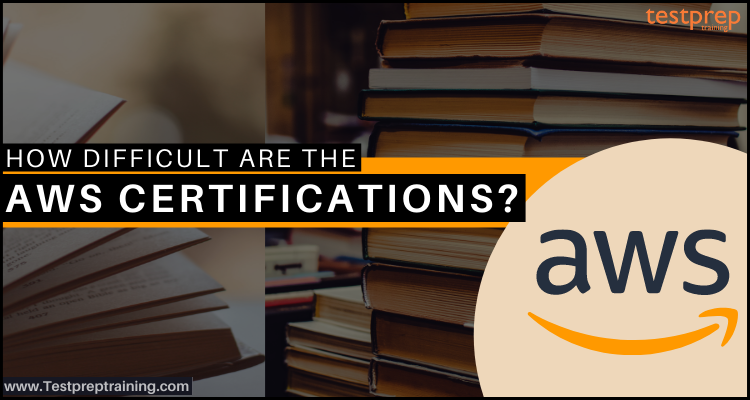
 AWS Certified Cloud Practitioner
AWS Certified Cloud Practitioner AWS Certified Solutions Architect – Associate
AWS Certified Solutions Architect – Associate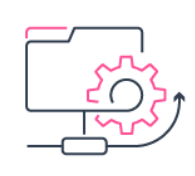 AWS Certified SysOps Administrator – Associate (SOA-C02)
AWS Certified SysOps Administrator – Associate (SOA-C02)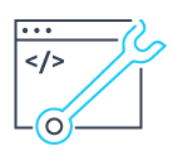 AWS Certified Developer – Associate
AWS Certified Developer – Associate AWS Certified Solutions Architect – Professional
AWS Certified Solutions Architect – Professional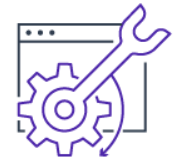 AWS Certified DevOps Engineer – Professional
AWS Certified DevOps Engineer – Professional AWS Certified Advanced Networking – Specialty
AWS Certified Advanced Networking – Specialty AWS Certified Security – Specialty
AWS Certified Security – Specialty AWS Certified Machine Learning – Specialty
AWS Certified Machine Learning – Specialty AWS Certified Data Analytics – Specialty
AWS Certified Data Analytics – Specialty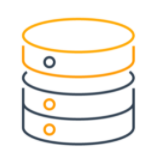 AWS Certified Database – Specialty
AWS Certified Database – Specialty
